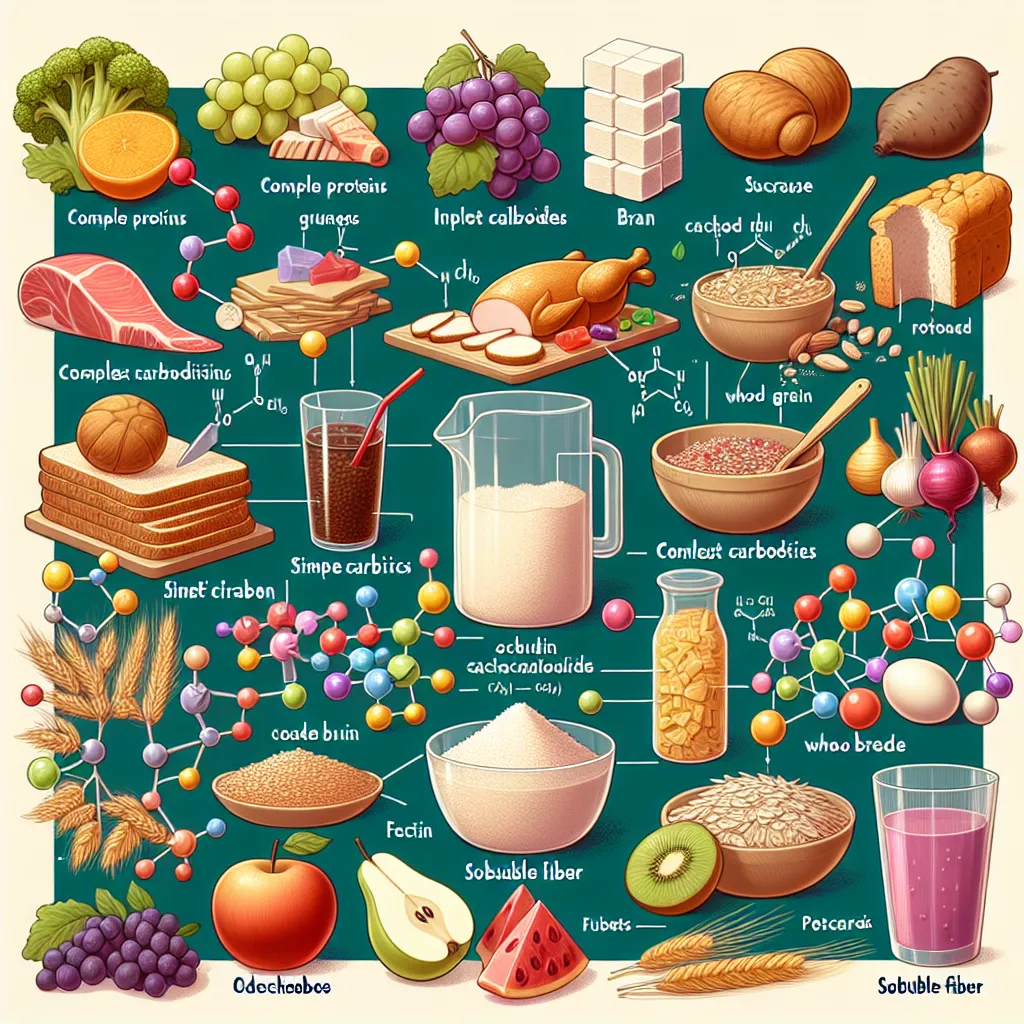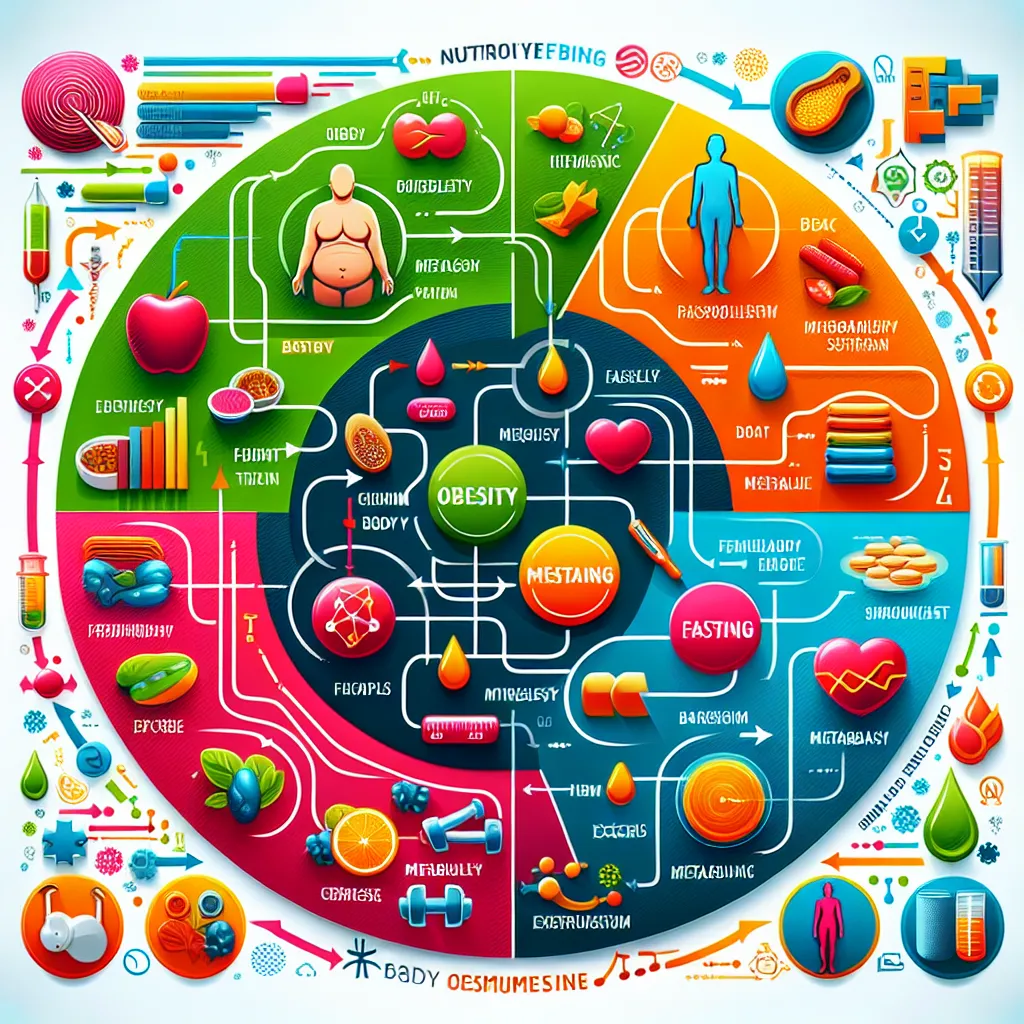Ask AI on The Internet
Question: 1.obese 2.adipose tissue 3.energy intake 4. kilocalorie or calorie 5. metabolism 6. fasting 7. subcutaneous fat 8. visceral fat 9. ketones 10. BMR 11. BMI 12. fad diets 13. ketosis 14.sustainable diet 15. immediate energy system 16. anaerobic metabolism 17. aerobic exercise 18. carb loading 19. sports dietitian 20. weight-cycling/yo-yo dieting
It looks like you've compiled a list of terms primarily related to nutrition, metabolism, and exercise. If you're looking for advice or information on any of these topics, I'd be happy to help. Here are brief explanations for each term: 1. **Obese** - A medical condition characterized by an excessive amount of body fat, typically defined by a Body Mass Index (BMI) of 30 or higher. 2. **Adipose tissue** - The body's main storage form of fat, consisting of fat cells that store energy and insulate the body. 3. **Energy intake** - The total amount of calories consumed from food and beverages. 4. **Kilocalorie or calorie** - A unit of energy. A kilocalorie (often just called "calorie") is the amount of energy needed to raise the temperature of one kilogram of water by one degree Celsius. 5. **Metabolism** - The set of life-sustaining chemical reactions in the body that convert food into energy, building materials for cells, and waste products. 6. **Fasting** - The voluntary abstinence from all or some kinds of food and drink for a specific period. 7. **Subcutaneous fat** - Fat stored directly under the skin, as opposed to around internal organs. 8. **Visceral fat** - Fat that surrounds internal organs, particularly within the abdomen, which is more closely linked to various health risks compared to subcutaneous fat. 9. **Ketones** - Chemicals produced by the liver from fatty acids during periods of low food intake, carbohydrate restrictive diets, fasting, or prolonged intense exercise. 10. **BMR (Basal Metabolic Rate)** - The number of calories your body needs to maintain basic physiological functions, like breathing and digestion, at rest. 11. **BMI (Body Mass Index)** - A measurement that uses height and weight to estimate whether a person is underweight, normal weight, overweight, or obese. 12. **Fad diets** - Diet plans that often promise quick weight loss and are usually not sustainable or grounded in solid nutritional science. 13. **Ketosis** - A metabolic state in which the body burns fat for fuel instead of carbohydrates, producing ketones as a byproduct. 14. **Sustainable diet** - A diet that is healthy for the body, environmentally friendly, and economically feasible to maintain over the long term. 15. **Immediate energy system** - The body’s immediate use of energy through stored ATP and creatine phosphate, which powers short bursts of intense activity. 16. **Anaerobic metabolism** - Production of energy in the absence of oxygen, typically used by the body during high-intensity exercise lasting a short duration. 17. **Aerobic exercise** - Physical activity that uses large muscle groups and can be maintained continuously; it relies on aerobic metabolism to supply energy (e.g., running, swimming, cycling). 18. **Carb loading** - A strategy involving the consumption of a high amount of carbohydrates in preparation for prolonged endurance activities to maximize glycogen stores in muscles. 19. **Sports dietitian** - A nutrition professional who specializes in designing diet plans that optimize athletic performance. 20. **Weight-cycling/yo-yo dieting** - The repeated pattern of losing and regaining weight, which can have various negative effects on physical and mental health. If you have specific questions or need detailed advice on any of these terms, feel free to ask!
Think your answer is better than the AI's? Post it below.
Other Most Relevant Posts:
 1. Carbohydrates - T
2. Dietary fiber - A
3. Fats - G
4. Fat-soluble vitamins - P
5. Glucose - K
6. Minerals - Y
7. Nutrients - V
8. Nutrition - OO
9. Protein - TT
10. Saturated fats - SS
11. Trans fa
1. Carbohydrates - T
2. Dietary fiber - A
3. Fats - G
4. Fat-soluble vitamins - P
5. Glucose - K
6. Minerals - Y
7. Nutrients - V
8. Nutrition - OO
9. Protein - TT
10. Saturated fats - SS
11. Trans fa
 ### What is a Fad?
### Is Losing 30 lbs. In a Week Healthy?
### Top 10 Fad Diets: 2023-2024
### The Cabbage Soup Diet
### The Keto Diet
### The Paleo Diet
### The Intermittent Fasting Diet
### Th
### What is a Fad?
### Is Losing 30 lbs. In a Week Healthy?
### Top 10 Fad Diets: 2023-2024
### The Cabbage Soup Diet
### The Keto Diet
### The Paleo Diet
### The Intermittent Fasting Diet
### Th
 Navigating Nutrition: Exploring Benefits of a Balanced Diet Over Supplements and Essential Nutrients for Optimal Health
Navigating Nutrition: Exploring Benefits of a Balanced Diet Over Supplements and Essential Nutrients for Optimal Health
 1. **Essential Amino Acids in Complete Proteins**
2. **Missing Amino Acids in Incomplete Proteins**
3. **Easily Digestible Simple Carbs**
4. **Scientific Term: Saccharides**
5. **Primary Energy:
1. **Essential Amino Acids in Complete Proteins**
2. **Missing Amino Acids in Incomplete Proteins**
3. **Easily Digestible Simple Carbs**
4. **Scientific Term: Saccharides**
5. **Primary Energy:
Question Tags
If you want your question answered by an AI, click here.



Post your own comment: